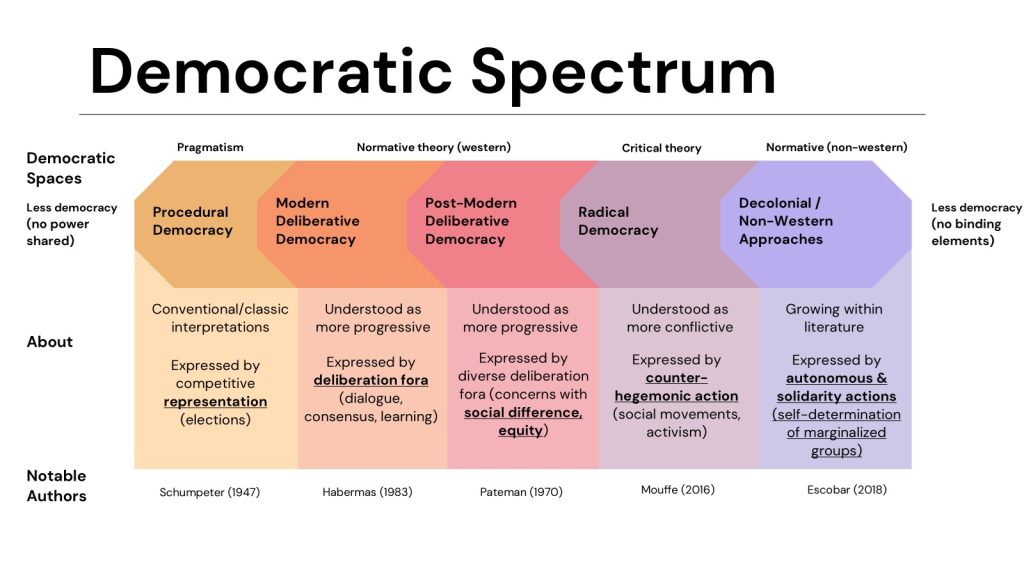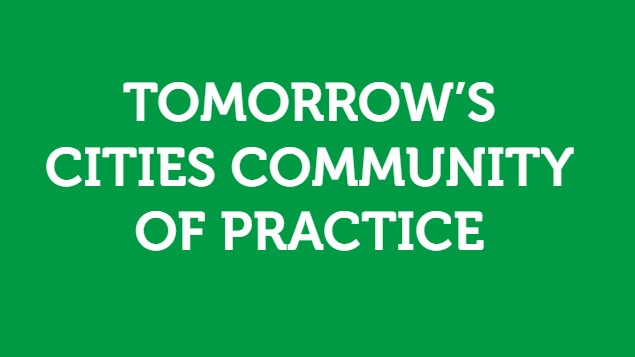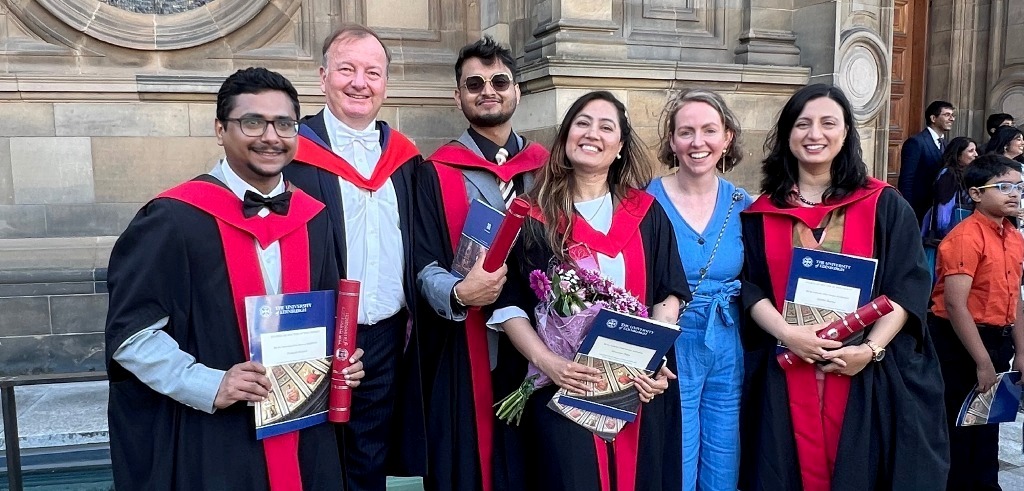
- Close
28/09/2025 |
The Impacts of Climate Change Adaptation on Democracy

This short note highlights the motivation and overviews an approach to assessing the impacts of climate change adaptation on democracy. This responds to calls, for example from the IPCC, for greater recognition that adaptation actions impact more widely than simply on risk. Adaptation actions include the visioning and decision-making processes that turn social priorities of competing actors into realised interventions, as well as the outcomes of adaptation.
Adaptation processes and outcomes are woven with other policy and practical actions and with change in the contextualising social and physical environment. This can make it difficult to disentangle adaptation impacts from background noise. Such challenge are especially difficult as time passes from a decision or action.
Figure 1 presents the opportunity opened by considering the impacts of adaptation on development and specifically on democratic context. It is only by combining current focus on the ways in which democratic context constrains adaptation action – with additional insight form the ways in which adaptation actions also shape democratic context that these coevolving systems can be understood. It is in this understanding that targeted efforts at enhancing more inclusive, accountable and evidence based working can bring about transformative adaptation.
Figure 1: Shifting the lens on democracy and adaptation.

But what is democracy? Many people have spent lifetimes considering this question. To reduce democratic theory to something more manageable for analysis is both essential and hugely challenging There is a risk of such work being reductive and of the subjectivity of the researcher leading to bias. Figure 2 presents one response to this question. Here democracy is bounded by polities that are autocratic providing little room for more than one voice, and those that are anarchistic, where there is little room for multiple voices to arrive at common ground.
In this approach, the democratic spectrum is composed from five traditions in political theory: procedural democracy, modern deliberative democracy, post-modern deliberative democracy, radical democracy and decolonial approaches.
Figure 2: The Democratic Spectrum

Having mapped out the word of democratic possibility the next step is to unpack this to allow closer engagement with the substance of democratic practice. The ai here is not to narrow the application of work into existing democratic polities but rather to be able to explore the nature of democratic practice in ANY polity. All polities represent constrained democratic space, all polities have tensions with one or more traditions of democracy.
Figure 3 presents a first order unpacking of democracy into 12 qualities. Each has considerable work behind it. Each remains quite abstract but provides a mechanisms to bridge between the range of options presented by the democratic spectrum and actual action on the ground. These qualities can help guide conversations with practitioners, policy makers and local actors. These should focus on providing examples of specific qualities. These examples will likely be viewpoint and context specific.
Once examples are expressed it is possible to build on these to consider the ways in which past adaptation process and outcomes have impacted on local democratic practice. It is also possible to look forward and consider which qualities an actor might prioritise and so if any changes are needed to existing partnerships, processes or norms in order to bring this benefit as part of adaptation practice and policy.
Figure 3: 12 democratic qualities

There is considerable work needed to review the ways in which the impacts of adaptation on democracy can be surfaced and assessed. Existing work on adaptation impacts has discussed economic and environmental concerns. Impacts on democracy are harder to capture and arguably more fundamental to long-term wellbeing. The aim of this brief discussion is to help raise awareness of the need for a considered and rigorous approach to this challenge.
This item draws from an extensive research project ‘Consequences of Adaptation for Democratic Advance’, funded by University College London Climate Crisis Grand Challenge. For more details on the structured literature review and peer review process and other supporting material please contact Mark Pelling.


